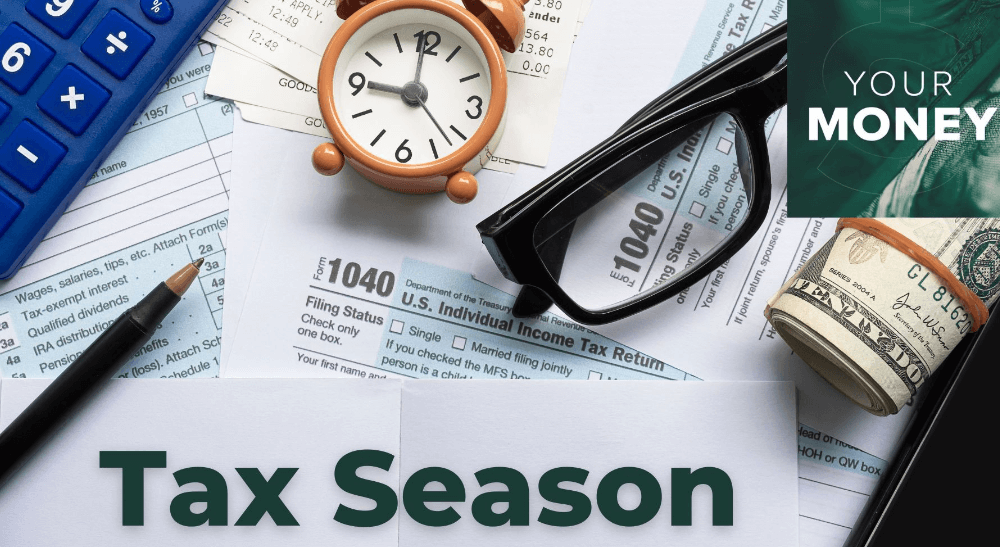📑Table of Contents:
Tax season rolls around once a year, and it’s crucial not to get caught unprepared as April 15 approaches. The date is significant for all U.S. taxpayers as the official deadline to file federal income tax returns. This comprehensive guide will walk you through the steps to ensure you’re ready, well-organized, and potentially even in a better financial position by the time you file.

Understanding the Significance of April 15
April 15 isn’t just any day—it’s the cutoff for submitting your tax returns. Missing this deadline can trigger penalties and interest if you owe money. Conversely, if you’re entitled to a refund, you won’t see any of it until you file. Additionally, many state tax deadlines coincide with the federal one, so it’s essential to keep that in mind to avoid penalties on both fronts.
How to Prepare for Tax Season
- Organize Your Documents Early: Start by gathering all necessary documentation, including W-2s, 1099s, receipts, and other relevant financial statements. Doing this well in advance prevents the frantic last-minute rush that often leads to mistakes or overlooked opportunities for deductions.
- Understand and Maximize Your Deductions: Tax deductions and credits can significantly lower your tax bill. Familiarize yourself with the deductions you qualify for, such as charitable contributions, educational expenses, or health care costs. Also, don’t overlook deductions specific to self-employment if they apply to you.
- Select the Right Tax Preparation Method: It is crucial to choose how to prepare and file your taxes. You can opt for reliable tax software, simplifying the process by guiding you through each step and ensuring you take advantage of all applicable tax laws. Alternatively, consulting with a tax professional could be invaluable if your financial situation is complex.
- Verify Your Information: Before you submit your return, double-check every detail. Ensure that your Social Security number, address, and all financial data are correct. Also, verify that you’ve reported all income and haven’t missed any critical deductions or credits.
Leveraging Technology and Professional Help
- Use Technology to Your Advantage: Tax software makes the filing process easier and helps manage documents and deadlines. Some platforms offer features like direct import of tax documents and real-time error checking.
- Consider Hiring a Professional: A professional tax preparer or a CPA can provide tailored advice for those with more complicated finances. This is particularly beneficial for anyone who has experienced significant life changes, such as getting married, buying a house, or starting a business.
What to Do If You Miss the Deadline
- File as Soon as You Can: Even if April 15 has passed, filing your taxes as soon as possible is crucial. The sooner you file, the less you’ll pay penalties and interest.
- Request an Extension: If you realize you can’t meet the deadline, you can apply for an extension, which gives you until October 15 to file your return. However, this extension doesn’t apply to any taxes owed, so it’s wise to estimate and pay any owed taxes by April 15 to avoid extra charges.
- Set Up a Payment Plan: The IRS offers payment plans for those who can’t pay their taxes in full by the deadline. These plans allow you to pay your tax bill over an extended period, though interest and penalties will continue to accrue.
Additional Tips for a Smooth Tax Season
- Stay Informed About Tax Changes: Tax laws can change yearly, impacting deductions, credits, and liabilities. Check updates from the IRS or consult with a tax professional to stay informed about these changes. This knowledge ensures you make the most informed decisions when filing your taxes.
- Maintain Good Record-Keeping Habits: Good record-keeping throughout the year is invaluable. Maintain organized records of all financial transactions, including income, expenses, and potential deductions. This practice simplifies your tax filing process and prepares you for potential audits.
- Consider Adjusting Your Withholdings: If you consistently owe money at tax time, or conversely, if you consistently receive large refunds, you might want to adjust your withholdings. You can modify how much tax is taken from your paychecks by updating your W-4 form through your employer. This adjustment can help you better manage your cash flow throughout the year.
- Utilize IRS Resources: The IRS website offers numerous tools and guides to help you understand your tax obligations. From interactive tax assistants to downloadable forms and publications, these resources are designed to assist taxpayers in navigating the complexities of their tax responsibilities.
- Plan for Future Tax Years: Once you’ve filed your taxes, it’s a good time to start planning for the next year. Consider any potential changes in your financial situation that might affect your taxes, such as a change in income, marital status, or even adjustments in the tax law. Planning can help you avoid surprises next tax season and possibly reduce future tax liabilities.
Preparing for Potential Complications
- Dealing with Unfiled Back Taxes: If you have unfiled tax returns from previous years, it’s important to address this issue as soon as possible. The IRS offers solutions for filing back taxes, and catching up can prevent further penalties and complications.
- Handling an IRS Audit: If you face an IRS audit, ensure you have all your documentation ready and consider seeking professional help. An audit doesn’t always mean a problem; sometimes, the IRS needs more information to verify your returns.
- Making Use of Tax Breaks for Life Events: Certain life events, such as having a child, going to college, or retiring, can offer new opportunities for tax savings. Familiarize yourself with these possibilities to take full advantage of relevant tax breaks.

Final Thought
By preparing early, understanding your tax obligations, and utilizing available resources, you can handle the April 15 tax deadline with confidence. Start planning now, use the tools at your disposal, and consider professional advice if your situation calls for it. With the right approach, you can ensure that tax season goes smoothly, leaving you free to focus on what matters most in your financial life.





